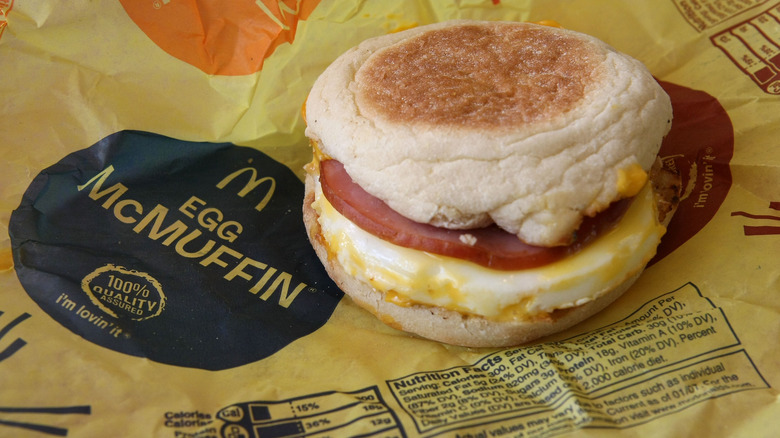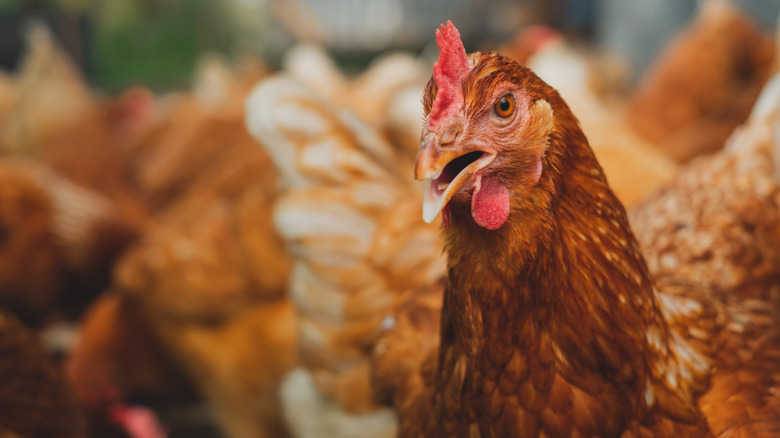Does McDonald's Use Cage-Free Eggs?
Of the numerous mistakes McDonald's has made throughout history, the global fast food chain's commitment to sourcing 100% cage-free eggs in the United States was not one of them. Announced in 2015, this was a goal the corporation aimed to complete by 2025. However, McDonald's made the switch to fully cage-free two years ahead of schedule — an expedited, major step toward food quality and animal well-being.
McDonald's set out on this journey less than 10 years ago, at a time when the supply of cage-free eggs simply wasn't enough to meet the needs of the company's 10s o f thousands of restaurants across America. Per a press release from the Golden Arches in 2019, this led to the company working with its egg supplier, Cargill, and egg producers to fill in the gaps and build up the supply themselves. McDonald's said in its statement that the process required to achieve this consisted of a whole team of people, including animal welfare experts, working together to renovate the farms and put new technology to use. Eight years and many fast food breakfast sandwiches later, McDonald's joint efforts have successfully brought its long-time promise to fruition.
The impact of McDonald's switching to cage-free eggs
A cage-free farm, which shouldn't be confused with a free-range farm, means that the hens are provided an open environment to roam about. The term usually refers to indoor spaces that can vary greatly in structure and what they offer, though McDonald's specified in its press release that its animals are given different platforms and compartments within the area to allow birds "freedom and choice in expressing their natural behaviors such as perching, dustbathing, jumping, and flying." Even with this, there are still ways to go in protecting animal welfare, as hens on cage-free farms might still be kept in overcrowded conditions. However, it's a considerable stride nonetheless considering it significantly lessens the pain chickens otherwise would have experienced while locked in a cramped cage.
The choice to use cage-free eggs makes a difference in food quality as well, especially for the masses in America, where McDonald's has been titled the country's favorite fast food restaurant. Cage-free eggs have been proven to be healthier overall, with more protein and less saturated fat. They also contain higher levels of important vitamins and minerals, including but not limited to Vitamin A, Vitamin E, and omega 3s. Most importantly, cage-free eggs have a lower chance of being contaminated with bacteria like Salmonella. They are also less prone to insect infestation and have lesser amounts of chemical residue from insect repellents as a result — all adding up to a safer experience for the consumer.

